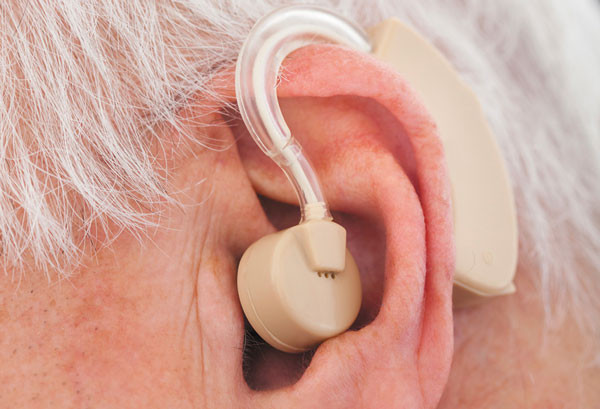Hearing aids may help improve brain function

Image: AndreyPopov/Thinkstock
In the Journals
Here is another reason to get your hearing checked: it could strengthen your brain. A study to be published in the June 2016 American Journal of Audiology found that hearing aids improve brain function in people with hearing loss. Hearing loss can interfere with cognitive abilities because so much brain effort is put toward understanding speech, according to lead researcher Dr. Jamie Desjardins, assistant professor of speech language pathology at the University of Texas at El Paso. "Therefore, hearing aids can not only improve one's ability to hear, but also restore lost brain function," she says.
The study examined subjects in their 50s and 60s with bilateral sensorineural hearing loss—the most common type of permanent hearing loss—who had never used hearing aids or sought any evaluation. They were tested to measure their working memory, selective attention, and processing speed. The subjects wore hearing aids for an average of eight hours a day for six months. By the end of that time, the group had improved working memory by 14% and selective attention by 20%. Processing speed increased by 0.2 seconds from 1.4 seconds to 1.2.
More than nine million adults ages 65 and older have some level of hearing loss, but only about 20% who actually need hearing aids wear them, says Dr. Desjardins. "On average, it takes people 10 years from the time they first exhibit symptoms of hearing loss until they seek treatment," she says. "Although they might be able to get by without a hearing aid, they need to consider the potential impact hearing loss has on their cognitive performance."
Disclaimer:
As a service to our readers, Harvard Health Publishing provides access to our library of archived content. Please note the date of last review or update on all articles.
No content on this site, regardless of date, should ever be used as a substitute for direct medical advice from your doctor or other qualified clinician.















